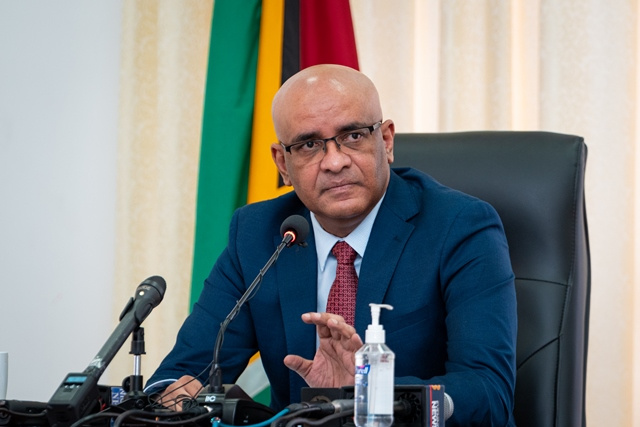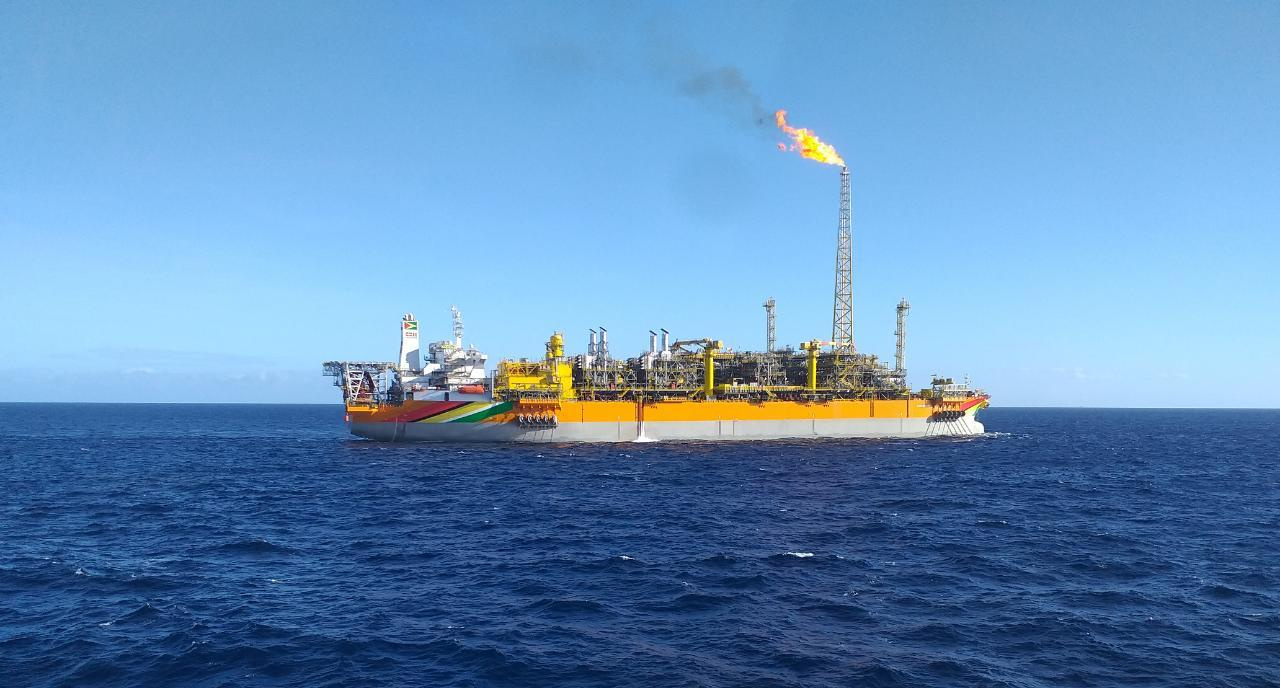Exxon to pay US$1.3M for excess flaring –Vice President
Explore Media Centre
Exxon to pay US$1.3M for excess flaring –Vice President
Published: May 22, 2021
Exxon to pay US$1.3M for excess flaring –Vice President

Vice President, Hon. Dr. Bharrat Jagdeo today said the Government expects to rake in about US$1.3 million in fees from ExxonMobil for excess flaring.
This was revealed during a press conference at the Arthur Chung Conference Centre, on Thursday.
The Vice President said Exxon’s local subsidiary, Esso Exploration and Production Guyana Limited (EEPGL), applied for an allowance to flare for 36 days, from May 25, for which it will have to pay. He said the company expects to have corrected its deficient gas compression equipment by the end of this period.
“So, it is approximately, they say they’re flaring about 15 million cubic [feet] per day now. That will be equivalent to about 1,152 tonnes of CO2 equivalent, or just below that.

And so, if you work out 1,100 tonnes per day, say 1,100 tonnes per day multiplied by 30 – US$30 per tonne – multiply by 36 days that they’ve applied for the continued flaring, it should take us to about US$1.3 million, around that, for the period they have applied for.”
Dr. Jagdeo countered criticisms about the fee, noting that it is globally competitive and even higher than some developed countries. He said the fee would be applied even before the permit expires next year. At this point, the new permit will include fines for flaring, consistent with the Payara permit granted by the Government last year.
“We don’t believe that this fee is recoverable against cost oil. That is our position.” Dr. Jagdeo said, in response to a question posed at the briefing.
He also noted concerns that Guyana may have to compensate the ExxonMobil-led consortium for any fine imposed on it because of the stability clause within the Stabroek block’s Production Sharing Agreement.
The clause, which was agreed to by former Minister of Natural Resources, Mr. Raphael Trotman in 2016, forbids the Government from imposing new taxes or fees on the companies. If it does, Guyana would have to compensate those companies.
The Vice President gave assurances that no compensation would be offered.

